at Bochum: Last-Minute goal conceded for equaliser
St. Nicholas Day 1996, a Friday: Bayer 04 are the league leaders when they travel to the previously unbeaten at home newcomers and fifth-placed VfL Bochum. A week after the terrific home win in the derby, the Werkself are solid in defence and put VfL, coached by the future Bayer 04 boss Klaus Toppmöller, under heavy pressure with their pressing. After a deserved opener from Ulf Kirsten on 18 minutes, Bochum are awarded a disputed penalty that Thomas Stickroth converted to equalise. The game threatens to turn round with Bochum having two really good goalscoring opportunities before half-time.
Bayer 04 regain the upper hand after the restart, retake the lead and have the game under control after a red card is shown to the Bochum player Kracht. With 89 minutes played, a wonderful strike from a free-kick by Dariusz Wosz levels the scores at 2-2 and stops Bayer 04 being top of the table at the end of the first half of the season. The Werkself drop two points that, as we know today, will be sorely missed at the end of the campaign.
HERE are TV highlights of the clash in Bochum.
holding on to top spot
Klaus Toppmöller is the Bayer 04 coach five years later and he has taken his team to the top of the table. On 8 December, four days after a brilliant 3-0 home win against Deportivo La Coruna in the Champions League, FC Nürnberg under coach Klaus Augenthaler visit the Ulrich Haberland Stadium.
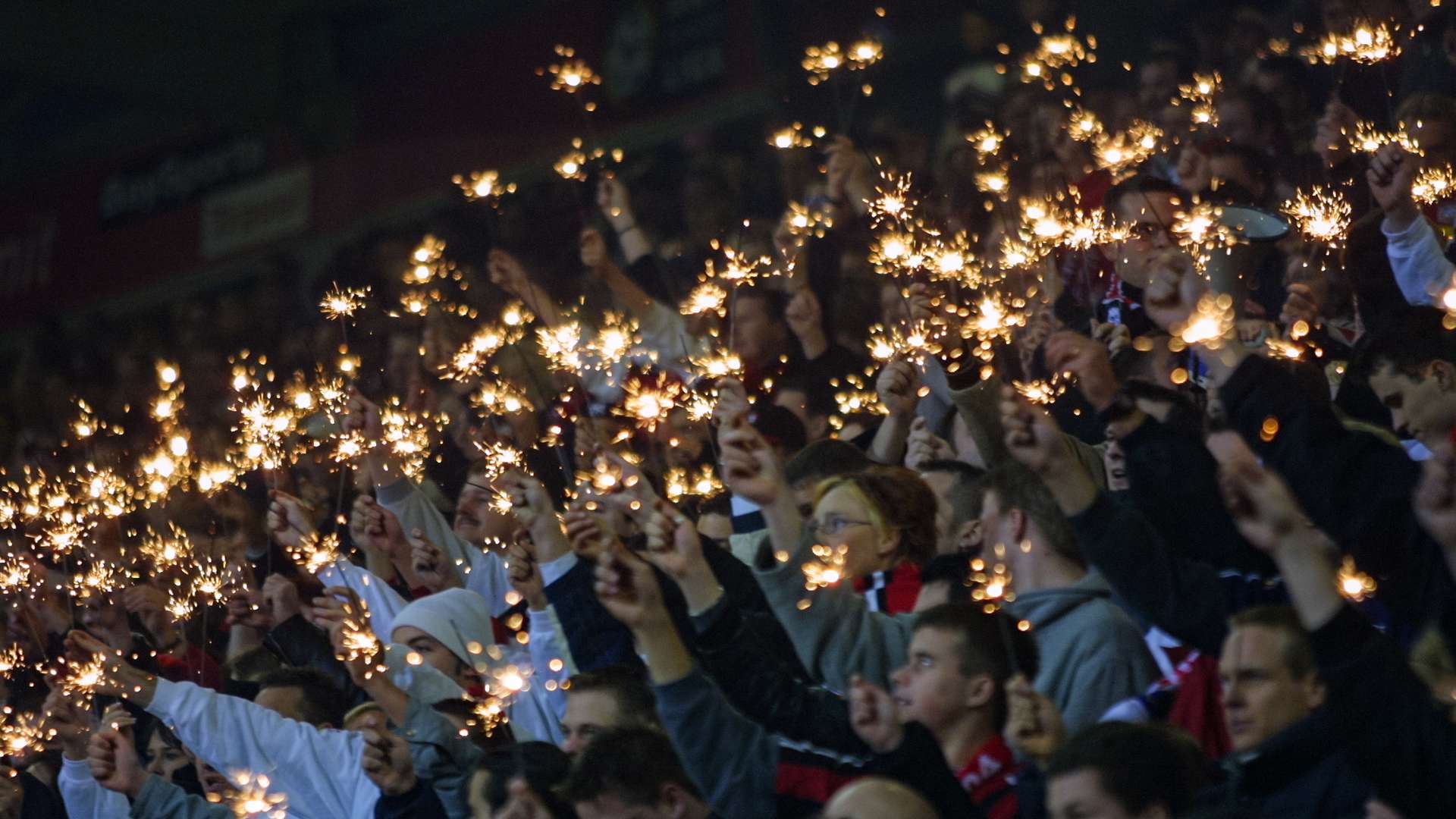

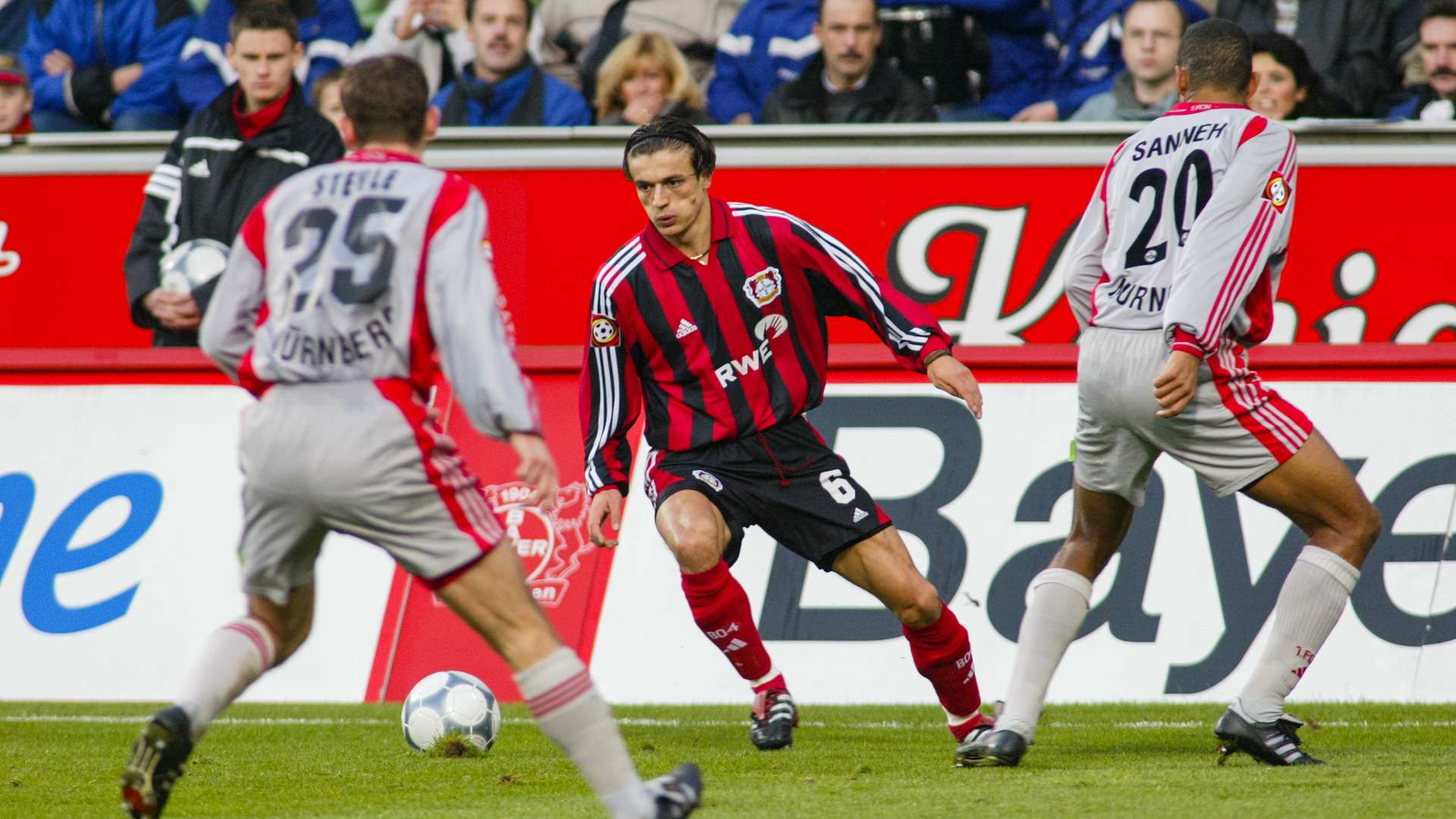
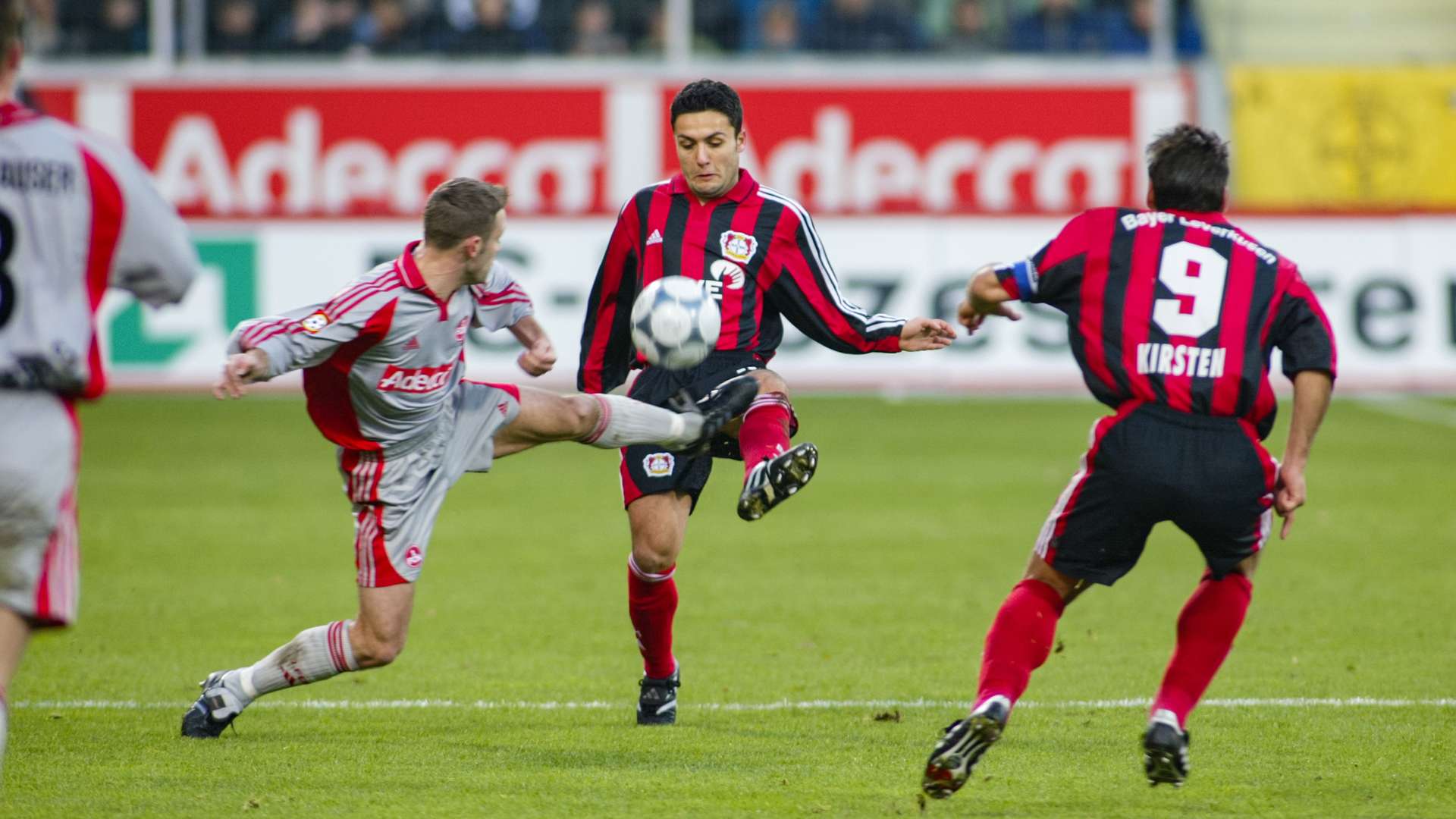
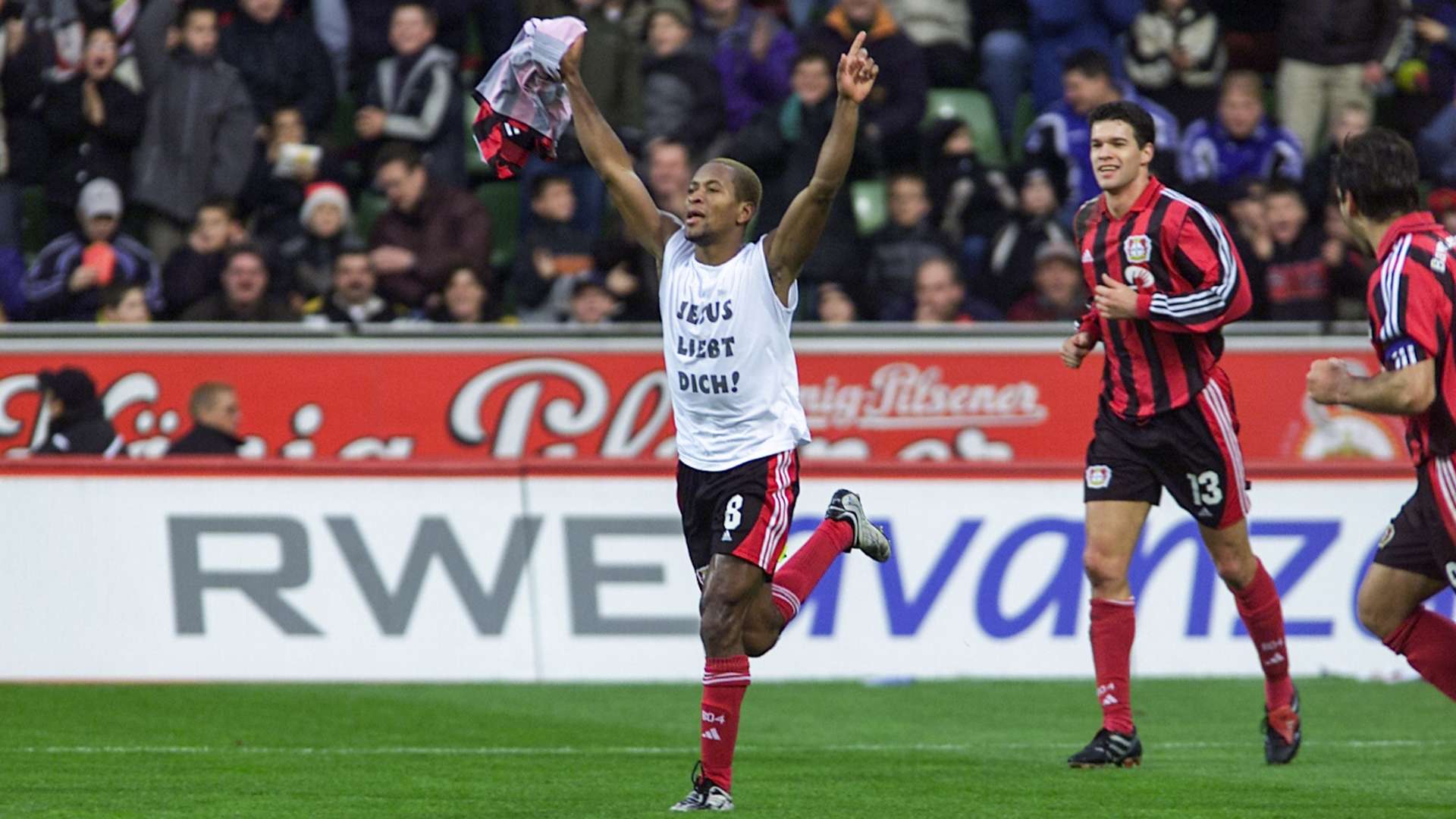
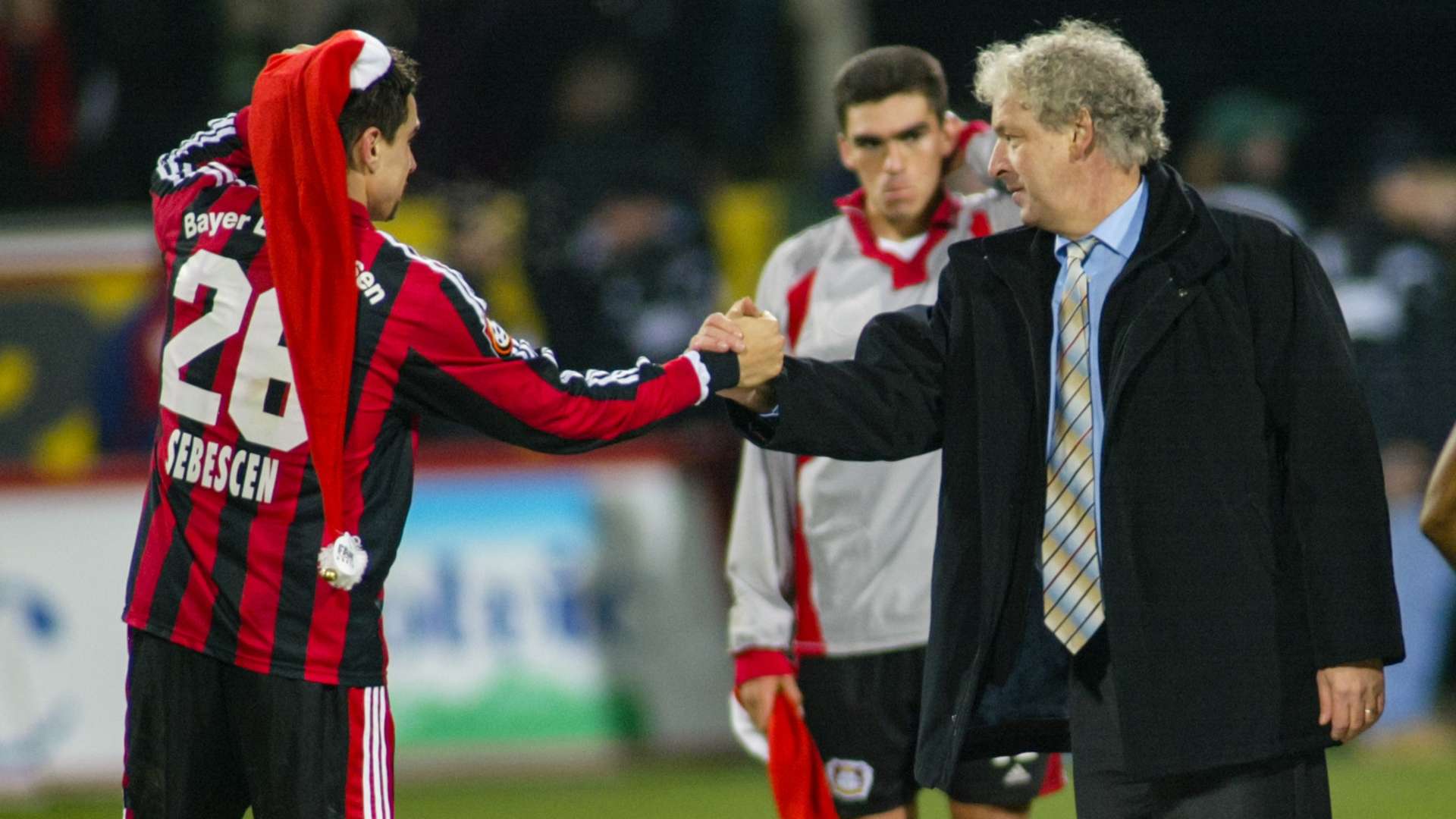
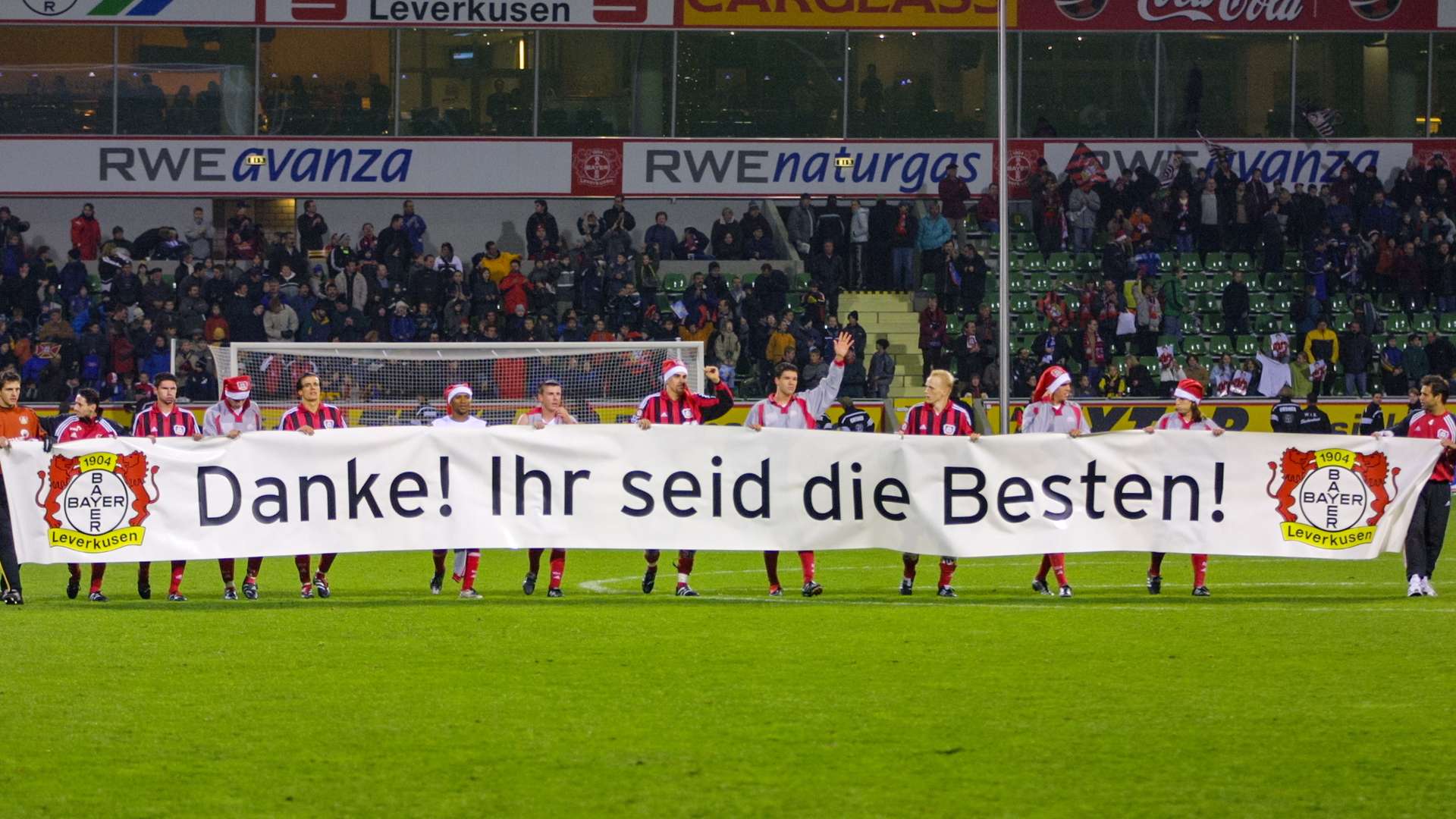
As so often in that season, the Werkself had to go behind, and even twice this time, before waking up. The match ended in a hard-fought 4-2 home win with top spot maintained. Despite two away defeats in Berlin and Wolfsburg, Bayer 04 are top of the league at the halfway stage and then at Christmas because Borussia Dortmund can only manage to draw twice. Here too: Today we know what a point in these two games would have brought.
Related News
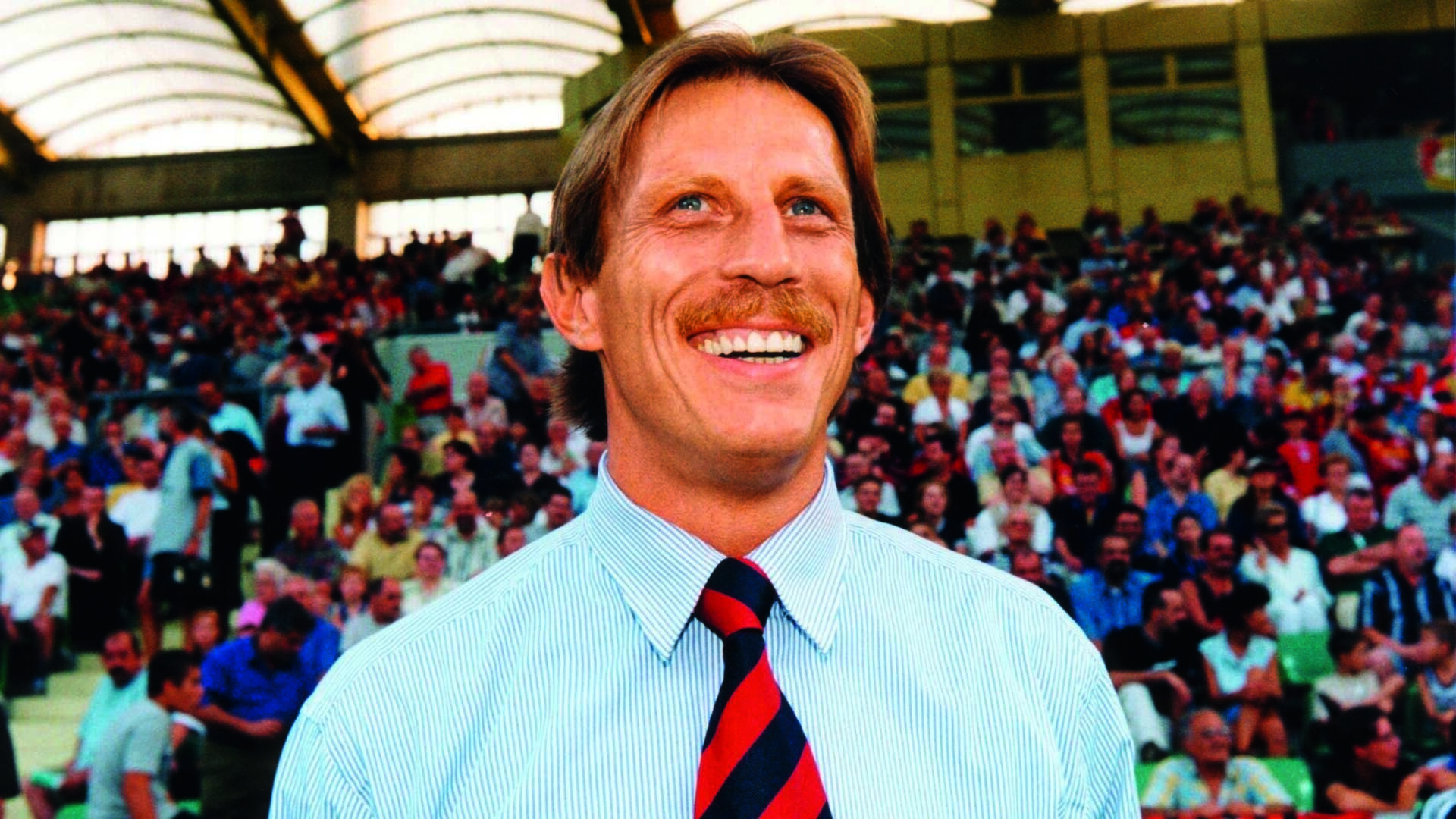
Legend: Christoph Daum - The man who taught us to want
Christoph Daum was born on 24 October 1953 in Zwickau. As a child, he moved to West Germany with his mother and grew up in Duisburg. He developed a great enthusiasm for football at an early age, even though it soon became clear that his future lay less on the pitch than on the sidelines. Even at a young age, his passion for analysing, explaining and improving things became apparent.
Show more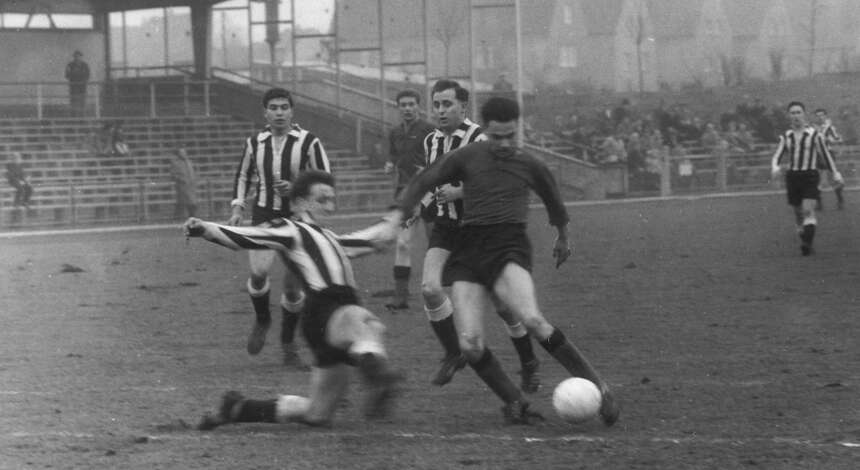
From the archives: 65 years ago - Another victory at last
When the Bayer 04 players celebrated Christmas in 1960, they spent the winter in second place in the Oberliga West 2 on 20 points - but already five points behind leaders Schwarz-Weiß Essen. However, coach Erich Garske's team are struggling to get back on track in the new year. A goalless draw against Bonner FV at home at the Ulrich Haberland Stadium was followed by a 2-1 away defeat in Erkenschwick. The following home game also yielded just one point. As a result, the team's promotion ambitions dwindled to a minimum, as the gap to the coveted spot has now grown to a challenging ten points.
Show more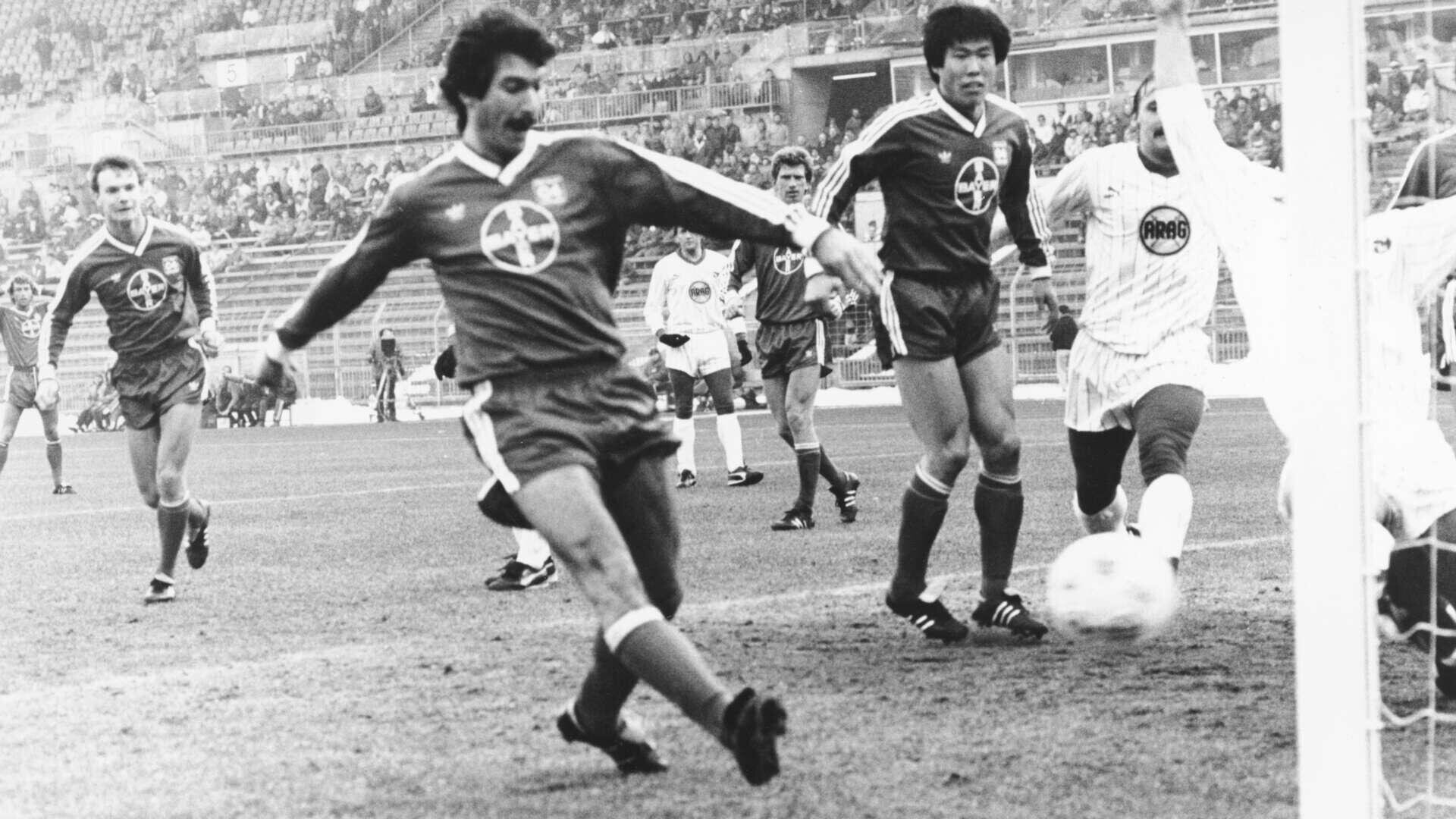
Goals of the month: From Waas to Tapsoba
In this video you can see impressive and important goals in Bayer 04 history from the month of February. It's not always about the beauty of the goals, but also a reminder of special games and players.
Show more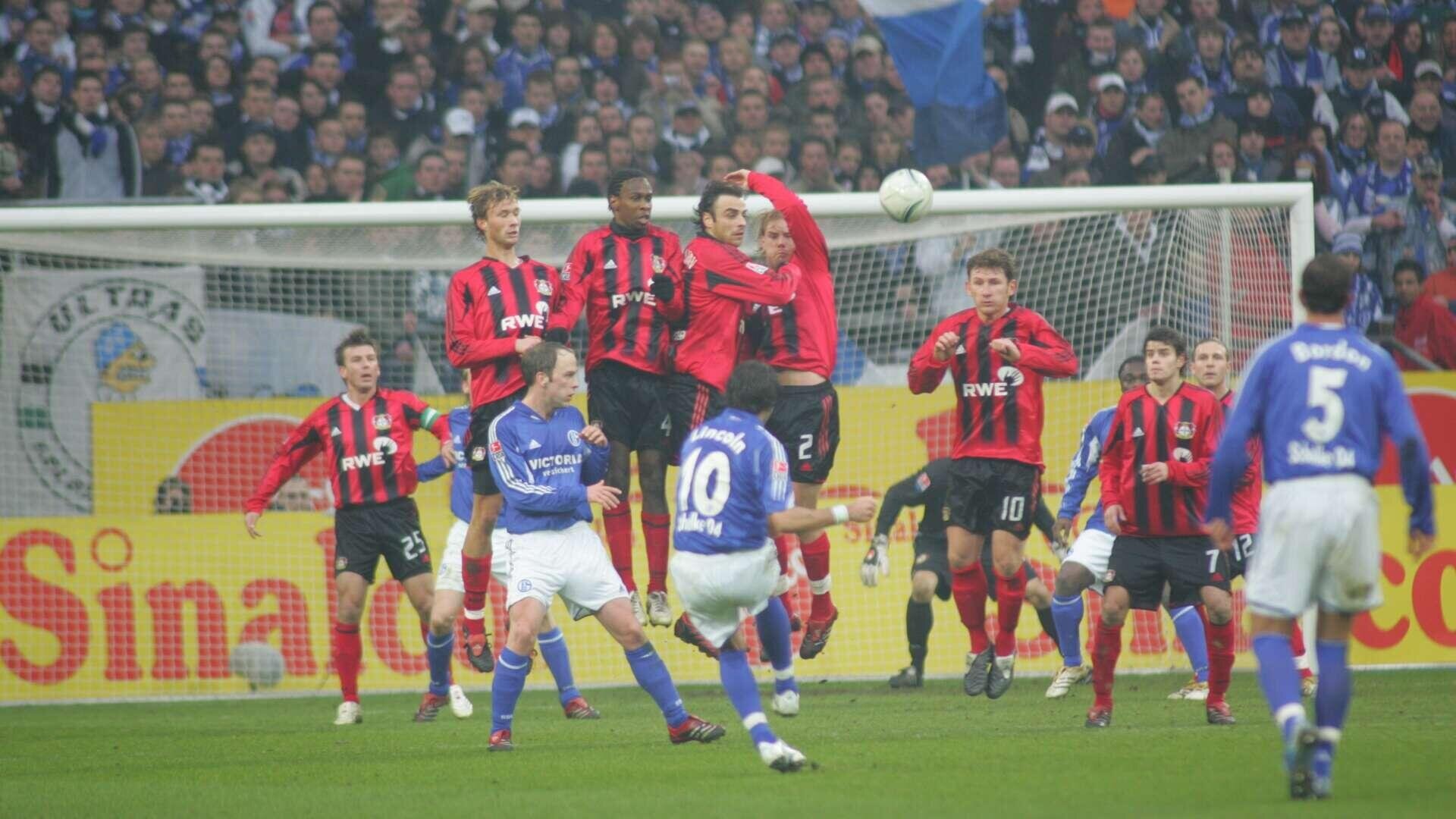
Match of the month: 20 years ago - A game of goals galore
It is 11 February 2006 and Schalke 04 and the Werkself kick off at 3.30 p.m. in a match that ends up being historic - at least from a Bayer 04 perspective.
Show more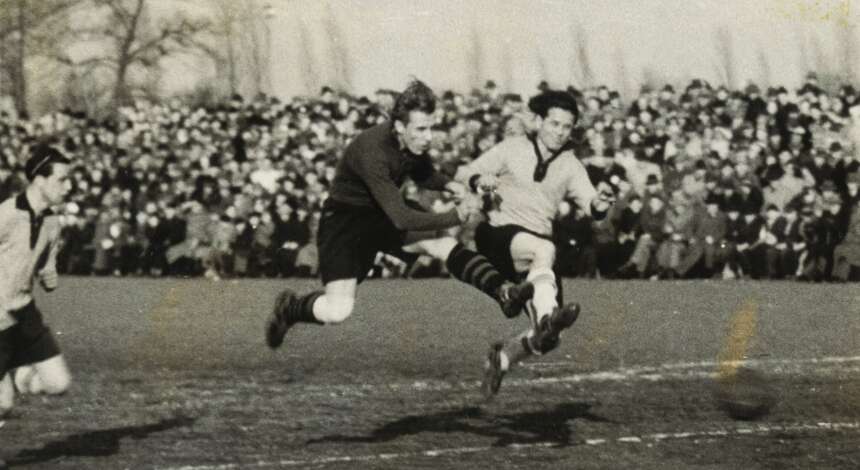
History: 75 years ago - The 1950/51 season (February)
As league leaders, the Werkself welcomed the relegation-threatened team from Rhenania Würselen. On 4 February 1951, 5,000 spectators line the touchlines despite the Sunday carnival parades. And they see a home team that is superior on the pitch. Without Theo Kirchberg, who was ill, and Emil Becks, who was suspended, the hosts attacked the opposing goal from the start. Battling against a strong wind in the first half, Bayer 04 created chance after chance, but were repeatedly thwarted by the Würselen goalkeeper. With the score at 0-0 at half-time, Karl Heinz Spikofski tried his luck on 55 minutes and hammered the ball into the opposition net from 20 metres out. Rhenania can no longer counterattack. The siege of the Würselen penalty area continued right to the end, but the game ended in a narrow 1-0 win.
Show more